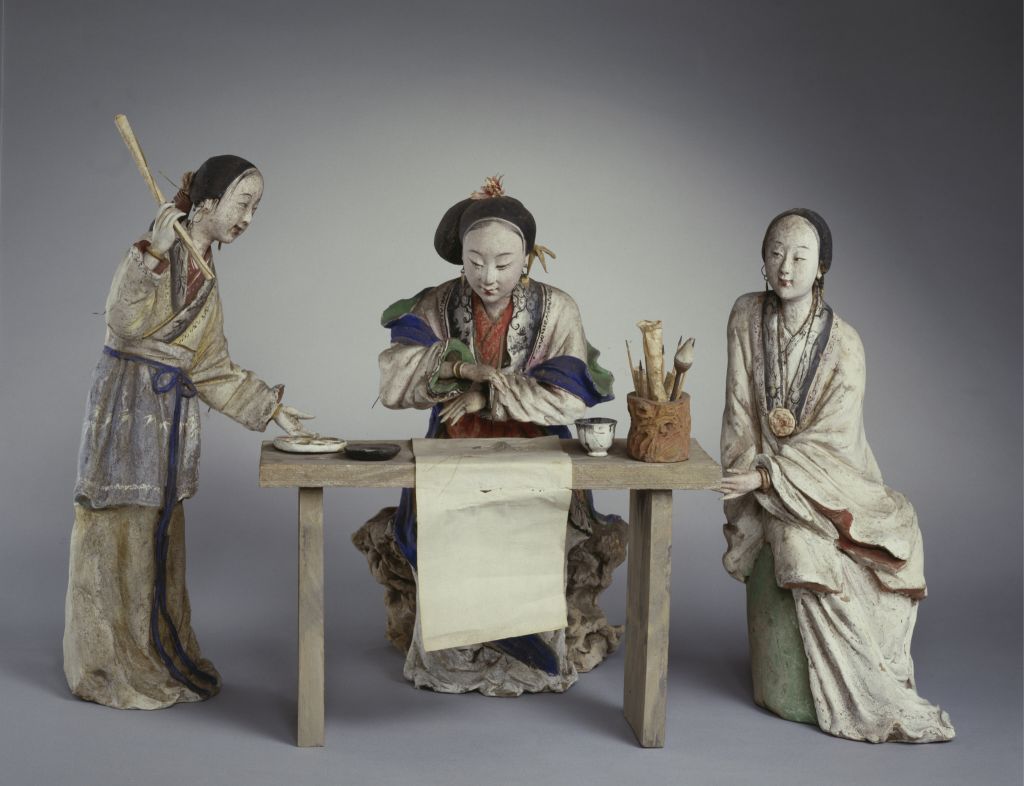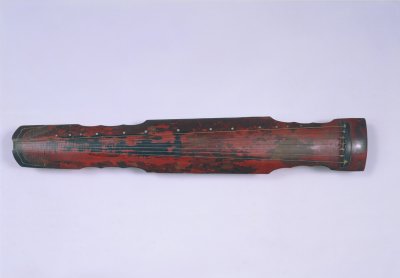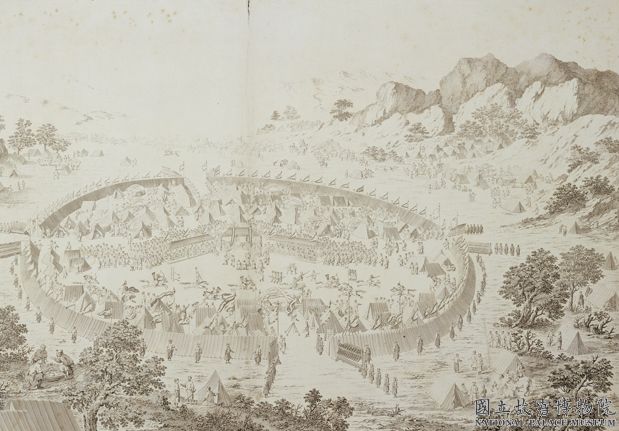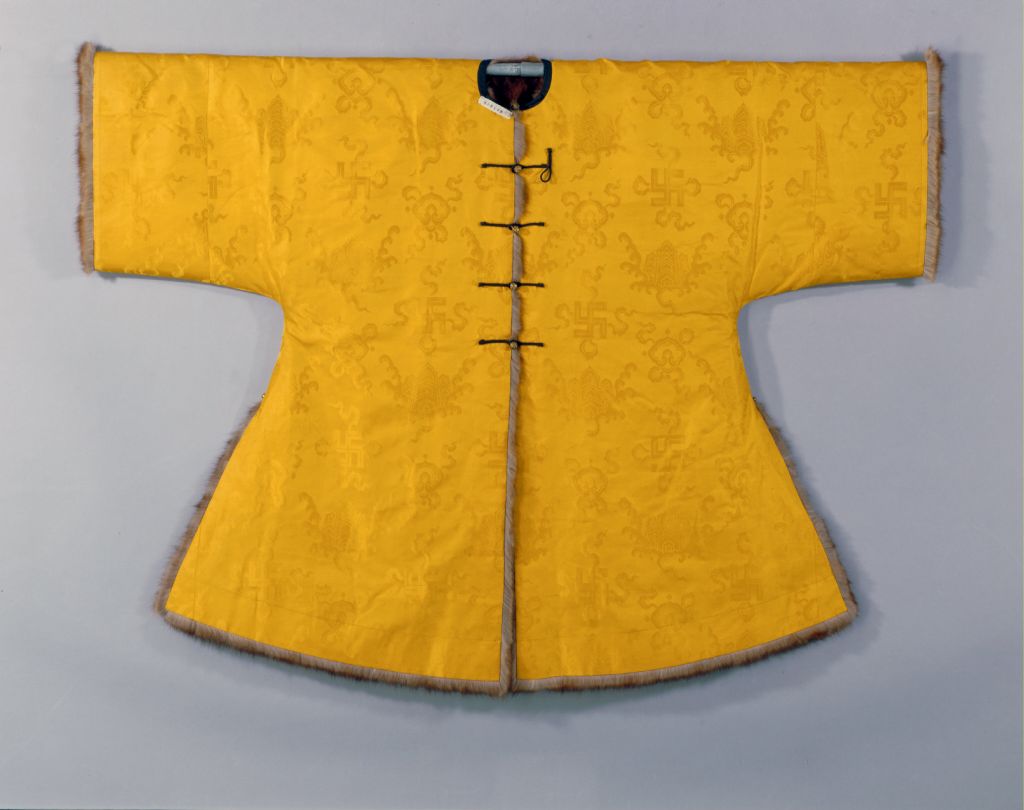[Song Tuo Tang Lushan Temple Stele]
This stele is located in Yuelu Temple, Hengshan, Hunan Province, so it is also known as the Yuelu Temple Stele, also known as the Yuelu Mountain Temple Stele. Li Yong wrote and combined books. Now Yuelu Park in Changsha, Hunan. It was established in September of the 18th year of Tang Kaiyuan (730). The monument is 270 cm high and 135 cm wide. The running script has 28 lines and 56 characters. The seal script “Yuelu Temple Stele” has two lines and four characters. At the end of the tablet, there are six characters, “Jiangxia Yellow Crane Carving”. The tablet yin is also written by Li Yong, and the characters are slightly smaller than the tablet yang. Because this tablet was once embedded in the wall, the rubbings on the inside of the tablet are very rare. In addition, the inscriptions on the inscriptions on the inscriptions on the inscriptions on the inscriptions on the inscriptions on the inscriptions on the inscriptions on the inscriptions on the inscriptions on the inscriptions on the inscriptions on the inscriptions on the inscriptions on the inscriptions on the inscriptions on the inscriptions on the inscriptions on the inscriptions on the inscriptions on the. There are inscriptions on the side of the tablet, such as Mi Fu, Ming and Qing people’s inscriptions, and money viewing. Because the stone tablet is not precise, it has faded prematurely. It has been gouged out and carved, but few rubbings have not been gouged out. This tablet was written by Li Yong when he was 53 years old. It was signed with the title of “La Shi of the former Chenzhou”, ten years later than the “Stele of Li Sixun”
This famous monument has always been praised. Wang Shizhen of the Ming Dynasty said, “The Monument of Yuelu Temple is better than the Cloud Hui… Its expression is wandering, innocent, and indistinct in the broken ink. It is still enough to topple Meishan and Wu Xingya.” The evaluation is very high. The characteristics of this tablet: In terms of the use of the pen, because Li Yong took advantage of the calligraphy of the bells and kings in the Wei and Jin Dynasties and the calligraphy of the Northern Dynasties, his pen was solid, careful and open and close. In terms of the word structure, the structure is broad, open to all sides, and the central palace is tight, which fully reflects the unique and changeable artistic characteristics of Li Yong’s running script
This rubbings is the Song rubbings collected by the Palace Museum. Among them, the word “search” of “Ming search” has not been removed, including Dong Yuexi, Zhang Xiaobin’s autograph, Jing Xian, Zhang Wei, Dong Yuexi, Guo Zhicai, Yang Shoujing, Zhao Shijun, Feng Rujie’s postscript, and the seal “Dong Shi Han Zhai”, “Yue Xi”, “Jing Han Xie Zang”, etc
The Records of the Gengzi Selling the Summer by Sun Chengze in the Qing Dynasty, the Collection of Jinshi by Wang Chang in the Qing Dynasty, and the Postscript of Jinshi in Dongzhou Caotang by He Shaoji in the Qing Dynasty.
![图片[1]-Song Tuo Tang Lushan Temple Stele-China Archive](https://chinaarchive.net/Song dynasty/Inscription/568[1024].jpg)
![麓山寺碑-碑额之“山”字 图片[2]-Song Tuo Tang Lushan Temple Stele-China Archive](https://chinaarchive.net/Song dynasty/Inscription/569[1024].jpg) 麓山寺碑-碑额之“山”字
麓山寺碑-碑额之“山”字![麓山寺碑-碑额之“寺”字 图片[3]-Song Tuo Tang Lushan Temple Stele-China Archive](https://chinaarchive.net/Song dynasty/Inscription/570[1024].jpg) 麓山寺碑-碑额之“寺”字
麓山寺碑-碑额之“寺”字![麓山寺碑-碑额之“碑”字 图片[4]-Song Tuo Tang Lushan Temple Stele-China Archive](https://chinaarchive.net/Song dynasty/Inscription/571[1024].jpg) 麓山寺碑-碑额之“碑”字
麓山寺碑-碑额之“碑”字![麓山寺碑-碑文之一 图片[5]-Song Tuo Tang Lushan Temple Stele-China Archive](https://chinaarchive.net/Song dynasty/Inscription/572[1024].jpg) 麓山寺碑-碑文之一
麓山寺碑-碑文之一![麓山寺碑-碑文之二 图片[6]-Song Tuo Tang Lushan Temple Stele-China Archive](https://chinaarchive.net/Song dynasty/Inscription/573[1024].jpg) 麓山寺碑-碑文之二
麓山寺碑-碑文之二![麓山寺碑-碑文之三 图片[7]-Song Tuo Tang Lushan Temple Stele-China Archive](https://chinaarchive.net/Song dynasty/Inscription/574[1024].jpg) 麓山寺碑-碑文之三
麓山寺碑-碑文之三![麓山寺碑-碑文之四 图片[8]-Song Tuo Tang Lushan Temple Stele-China Archive](https://chinaarchive.net/Song dynasty/Inscription/575[1024].jpg) 麓山寺碑-碑文之四
麓山寺碑-碑文之四![麓山寺碑-碑文之五 图片[9]-Song Tuo Tang Lushan Temple Stele-China Archive](https://chinaarchive.net/Song dynasty/Inscription/576[1024].jpg) 麓山寺碑-碑文之五
麓山寺碑-碑文之五![麓山寺碑-碑文之六 图片[10]-Song Tuo Tang Lushan Temple Stele-China Archive](https://chinaarchive.net/Song dynasty/Inscription/577[1024].jpg) 麓山寺碑-碑文之六
麓山寺碑-碑文之六![麓山寺碑-碑文之七 图片[11]-Song Tuo Tang Lushan Temple Stele-China Archive](https://chinaarchive.net/Song dynasty/Inscription/578[1024].jpg) 麓山寺碑-碑文之七
麓山寺碑-碑文之七![麓山寺碑-碑文之八 图片[12]-Song Tuo Tang Lushan Temple Stele-China Archive](https://chinaarchive.net/Song dynasty/Inscription/579[1024].jpg) 麓山寺碑-碑文之八
麓山寺碑-碑文之八![麓山寺碑-碑文之九 图片[13]-Song Tuo Tang Lushan Temple Stele-China Archive](https://chinaarchive.net/Song dynasty/Inscription/580[1024].jpg) 麓山寺碑-碑文之九
麓山寺碑-碑文之九![麓山寺碑-碑文之十 图片[14]-Song Tuo Tang Lushan Temple Stele-China Archive](https://chinaarchive.net/Song dynasty/Inscription/581[1024].jpg) 麓山寺碑-碑文之十
麓山寺碑-碑文之十![麓山寺碑-碑文之十一 图片[15]-Song Tuo Tang Lushan Temple Stele-China Archive](https://chinaarchive.net/Song dynasty/Inscription/582[1024].jpg) 麓山寺碑-碑文之十一
麓山寺碑-碑文之十一![麓山寺碑-碑文之十二 图片[16]-Song Tuo Tang Lushan Temple Stele-China Archive](https://chinaarchive.net/Song dynasty/Inscription/583[1024].jpg) 麓山寺碑-碑文之十二
麓山寺碑-碑文之十二![麓山寺碑-碑文之十三 图片[17]-Song Tuo Tang Lushan Temple Stele-China Archive](https://chinaarchive.net/Song dynasty/Inscription/584[1024].jpg) 麓山寺碑-碑文之十三
麓山寺碑-碑文之十三![麓山寺碑-碑文之十四 图片[18]-Song Tuo Tang Lushan Temple Stele-China Archive](https://chinaarchive.net/Song dynasty/Inscription/585[1024].jpg) 麓山寺碑-碑文之十四
麓山寺碑-碑文之十四![麓山寺碑-碑文之十五 图片[19]-Song Tuo Tang Lushan Temple Stele-China Archive](https://chinaarchive.net/Song dynasty/Inscription/586[1024].jpg) 麓山寺碑-碑文之十五
麓山寺碑-碑文之十五![麓山寺碑-碑文之十六 图片[20]-Song Tuo Tang Lushan Temple Stele-China Archive](https://chinaarchive.net/Song dynasty/Inscription/587[1024].jpg) 麓山寺碑-碑文之十六
麓山寺碑-碑文之十六![麓山寺碑-碑文之十七 图片[21]-Song Tuo Tang Lushan Temple Stele-China Archive](https://chinaarchive.net/Song dynasty/Inscription/588[1024].jpg) 麓山寺碑-碑文之十七
麓山寺碑-碑文之十七![麓山寺碑-碑文之十八 图片[22]-Song Tuo Tang Lushan Temple Stele-China Archive](https://chinaarchive.net/Song dynasty/Inscription/589[1024].jpg) 麓山寺碑-碑文之十八
麓山寺碑-碑文之十八![麓山寺碑-碑文之十九 图片[23]-Song Tuo Tang Lushan Temple Stele-China Archive](https://chinaarchive.net/Song dynasty/Inscription/590[1024].jpg) 麓山寺碑-碑文之十九
麓山寺碑-碑文之十九![麓山寺碑-碑文之二十 图片[24]-Song Tuo Tang Lushan Temple Stele-China Archive](https://chinaarchive.net/Song dynasty/Inscription/591[1024].jpg) 麓山寺碑-碑文之二十
麓山寺碑-碑文之二十![麓山寺碑-碑文之二十一 图片[25]-Song Tuo Tang Lushan Temple Stele-China Archive](https://chinaarchive.net/Song dynasty/Inscription/592[1024].jpg) 麓山寺碑-碑文之二十一
麓山寺碑-碑文之二十一![麓山寺碑-碑文之二十二 图片[26]-Song Tuo Tang Lushan Temple Stele-China Archive](https://chinaarchive.net/Song dynasty/Inscription/593[1024].jpg) 麓山寺碑-碑文之二十二
麓山寺碑-碑文之二十二![麓山寺碑-碑文之二十三 图片[27]-Song Tuo Tang Lushan Temple Stele-China Archive](https://chinaarchive.net/Song dynasty/Inscription/594[1024].jpg) 麓山寺碑-碑文之二十三
麓山寺碑-碑文之二十三![麓山寺碑-碑文之二十四 图片[28]-Song Tuo Tang Lushan Temple Stele-China Archive](https://chinaarchive.net/Song dynasty/Inscription/595[1024].jpg) 麓山寺碑-碑文之二十四
麓山寺碑-碑文之二十四![麓山寺碑-碑文之二十五 图片[29]-Song Tuo Tang Lushan Temple Stele-China Archive](https://chinaarchive.net/Song dynasty/Inscription/596[1024].jpg) 麓山寺碑-碑文之二十五
麓山寺碑-碑文之二十五![麓山寺碑-碑文之二十七 图片[30]-Song Tuo Tang Lushan Temple Stele-China Archive](https://chinaarchive.net/Song dynasty/Inscription/598[1024].jpg) 麓山寺碑-碑文之二十七
麓山寺碑-碑文之二十七![麓山寺碑-碑文之二十六 图片[31]-Song Tuo Tang Lushan Temple Stele-China Archive](https://chinaarchive.net/Song dynasty/Inscription/597[1024].jpg) 麓山寺碑-碑文之二十六
麓山寺碑-碑文之二十六![麓山寺碑-碑文之二十八 图片[32]-Song Tuo Tang Lushan Temple Stele-China Archive](https://chinaarchive.net/Song dynasty/Inscription/599[1024].jpg) 麓山寺碑-碑文之二十八
麓山寺碑-碑文之二十八![麓山寺碑-碑文之二十九 图片[33]-Song Tuo Tang Lushan Temple Stele-China Archive](https://chinaarchive.net/Song dynasty/Inscription/600[1024].jpg) 麓山寺碑-碑文之二十九
麓山寺碑-碑文之二十九![麓山寺碑-碑文之三十 图片[34]-Song Tuo Tang Lushan Temple Stele-China Archive](https://chinaarchive.net/Song dynasty/Inscription/601[1024].jpg) 麓山寺碑-碑文之三十
麓山寺碑-碑文之三十![麓山寺碑-碑文之三十一 图片[35]-Song Tuo Tang Lushan Temple Stele-China Archive](https://chinaarchive.net/Song dynasty/Inscription/602[1024].jpg) 麓山寺碑-碑文之三十一
麓山寺碑-碑文之三十一![麓山寺碑-碑文之三十二 图片[36]-Song Tuo Tang Lushan Temple Stele-China Archive](https://chinaarchive.net/Song dynasty/Inscription/603[1024].jpg) 麓山寺碑-碑文之三十二
麓山寺碑-碑文之三十二![麓山寺碑-碑文之三十三 图片[37]-Song Tuo Tang Lushan Temple Stele-China Archive](https://chinaarchive.net/Song dynasty/Inscription/604[1024].jpg) 麓山寺碑-碑文之三十三
麓山寺碑-碑文之三十三![麓山寺碑-碑文之三十四 图片[38]-Song Tuo Tang Lushan Temple Stele-China Archive](https://chinaarchive.net/Song dynasty/Inscription/605[1024].jpg) 麓山寺碑-碑文之三十四
麓山寺碑-碑文之三十四![麓山寺碑-碑文之三十五 图片[39]-Song Tuo Tang Lushan Temple Stele-China Archive](https://chinaarchive.net/Song dynasty/Inscription/606[1024].jpg) 麓山寺碑-碑文之三十五
麓山寺碑-碑文之三十五![麓山寺碑-碑文之三十六 图片[40]-Song Tuo Tang Lushan Temple Stele-China Archive](https://chinaarchive.net/Song dynasty/Inscription/607[1024].jpg) 麓山寺碑-碑文之三十六
麓山寺碑-碑文之三十六![麓山寺碑-碑文之三十七 图片[41]-Song Tuo Tang Lushan Temple Stele-China Archive](https://chinaarchive.net/Song dynasty/Inscription/608[1024].jpg) 麓山寺碑-碑文之三十七
麓山寺碑-碑文之三十七![麓山寺碑-碑文之三十八 图片[42]-Song Tuo Tang Lushan Temple Stele-China Archive](https://chinaarchive.net/Song dynasty/Inscription/609[1024].jpg) 麓山寺碑-碑文之三十八
麓山寺碑-碑文之三十八
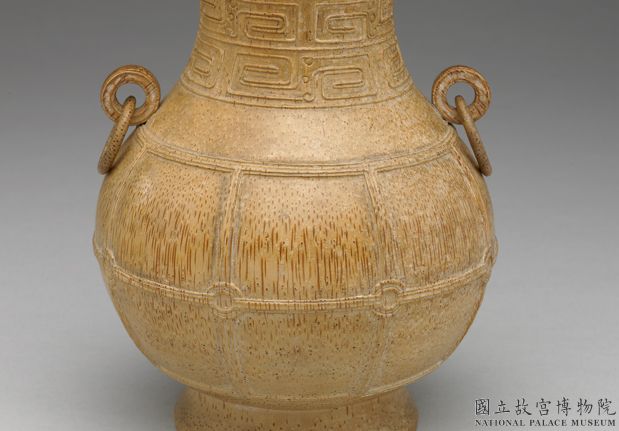
![[Qing Dynasty] British female painter—Elizabeth Keith, using woodblock prints to record China from the late Qing Dynasty to the early Republic of China—1915-China Archive](https://chinaarchive.net/wp-content/uploads/2022/11/image-191x300.png)
